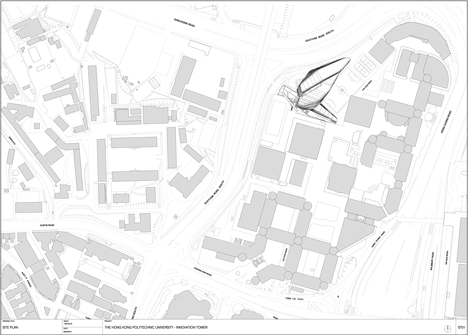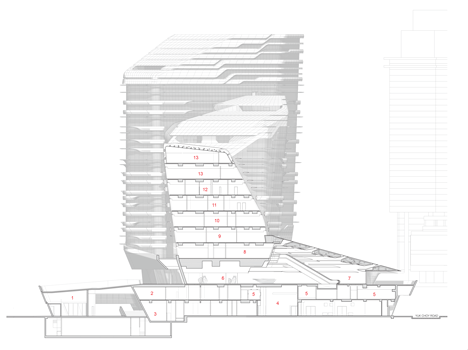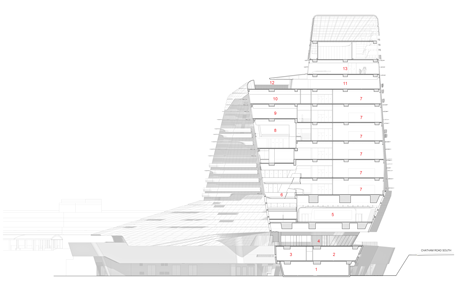Zaha Hadid's Hong Kong Innovation Tower laid bare in new movie and photographs
Dezeen exclusive: Zaha Hadid Architects has released a movie documenting the spaces of the firm's recently completed Jockey Club Innovation Tower (JCIT) in Hong Kong, as well as new shots by photographer Iwan Baan.
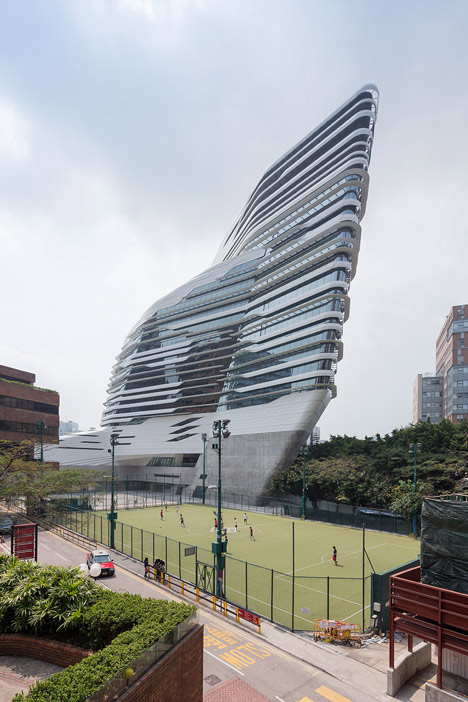
Located at the Hong Kong Polytechnic University, the JCIT opened earlier this year and was designed by Zaha Hadid Architects to provide a home to the 1,800 students and staff that make up the university's design school.
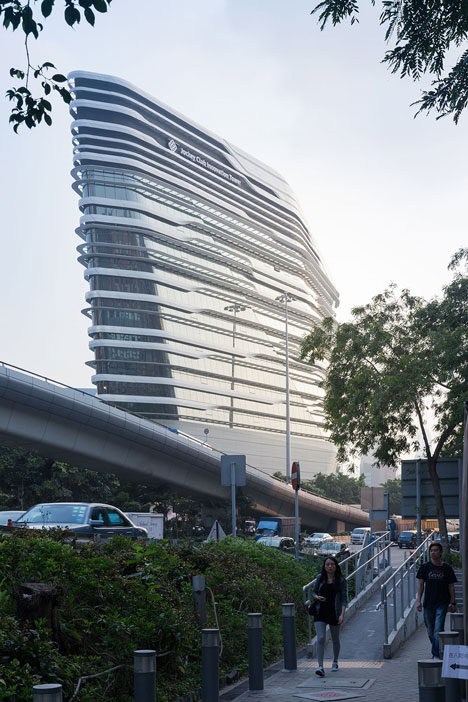
The building consolidates all the school's activities into a single building, accommodating design studios, laboratories, workshops, lecture and seminar spaces, classrooms and exhibition areas over a total of 15 storeys.
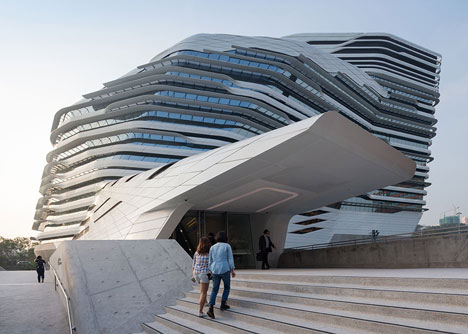
The design concept was to "dissolve the typical typology of the tower/podium into a more fluid composition". Curved surfaces smoothly transition between walls, ceilings and floors, while courtyards and lobbies are dotted throughout the building.
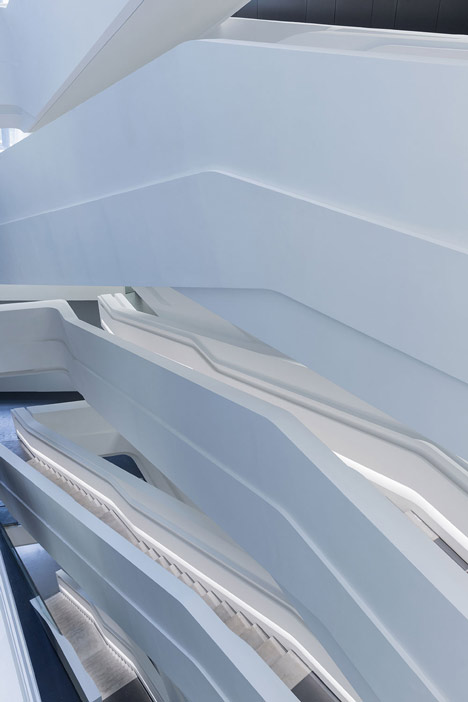
"Interior glazing and voids offer transparency and connectivity, while circulation routes and communal spaces have been arranged to encourage interaction between the many learning clusters and design disciplines," said the studio in a statement.
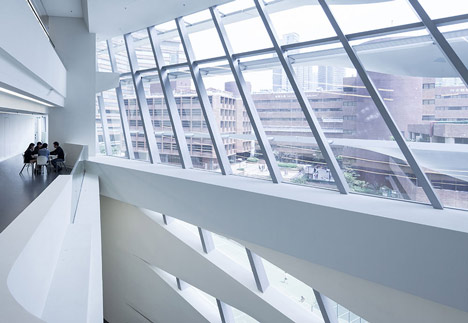
The 76 metre-high building is located on the Hong Kong Polytechnic University campus, close to Hung Hom station in Kowloon.
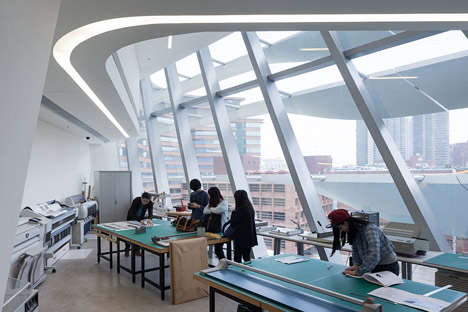
Movie is by Dan Chung. All photography is by Iwan Baan.
Here's a project description from Zaha Hadid Architects:
Jockey Club Innovation Tower
The Jockey Club Innovation Tower (JCIT) is home to the Hong Kong Polytechnic University (PolyU) School of Design, and the Jockey Club Design Institute for Social Innovation.
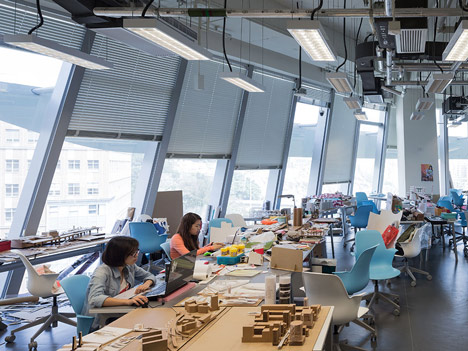
The 15-storey, 15,000 sq. m. tower accommodates more than 1,800 students and staff, with facilities for design education and innovation that include: design studios, labs and workshops, exhibition areas, multi-functional classrooms, lecture theatre and communal lounge.
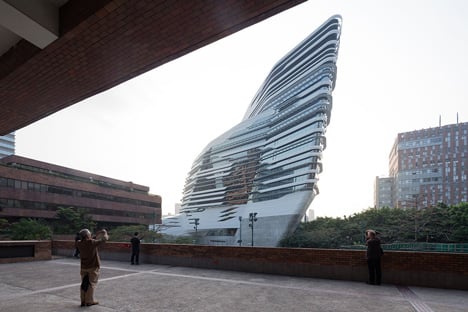
The Hong Kong Polytechnic University campus has developed its urban fabric over the last 50 years with the university's many faculties housed in visually coherent, yet very different buildings. The JCIT creates a new urban space that enriches the diversity of university life and expresses the dynamism of an institution looking to the future.
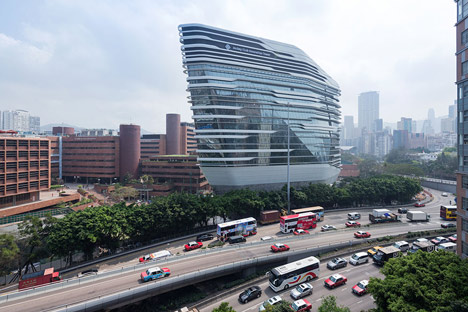
Located on a narrow, irregular site at the northeastern tip of the university campus (bordered by the university's football ground to the south, and the Chatham Road/Kowloon Corridor motorway interchange to the north), the JCIT is connected to the heart of the campus; encouraging the university's various faculties and schools to develop multidisciplinary initiatives and engagement with the community, government, industry, NGO's and academia.
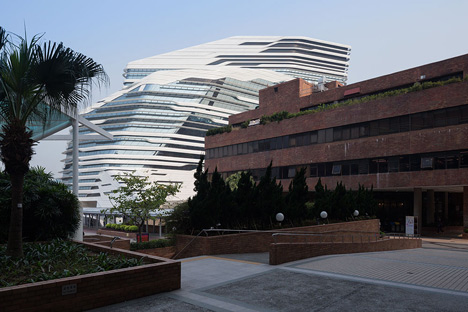
The JCIT design dissolves the typical typology of the tower/podium into a more fluid composition. Interior and exterior courtyards offer a variety of spaces to meet and interact, complementing the large exhibition forums, studios, theatre and recreational facilities.
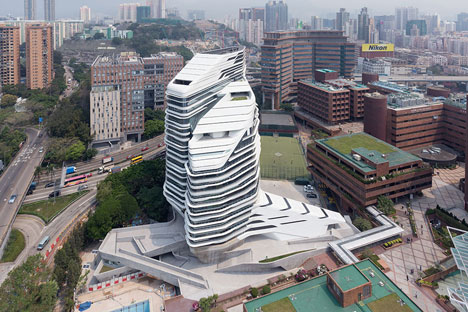
The tower's design promotes a multidisciplinary environment by connecting the variety of programs within the School of Design; establishing a collective research culture where many contributions and innovations can feed off each other.
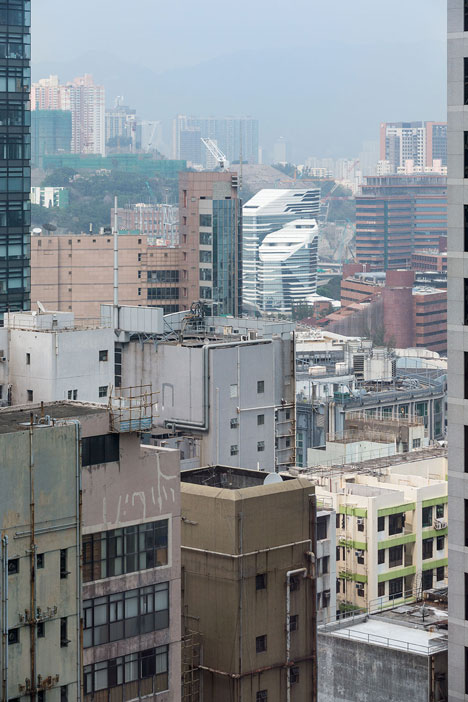
Students, staff and visitors move through 15 levels of studios, workshops, labs, exhibition and event areas within the school. Interior glazing and voids offer transparency and connectivity, while circulation routes and communal spaces have been arranged to encourage interaction between the many learning clusters and design disciplines.
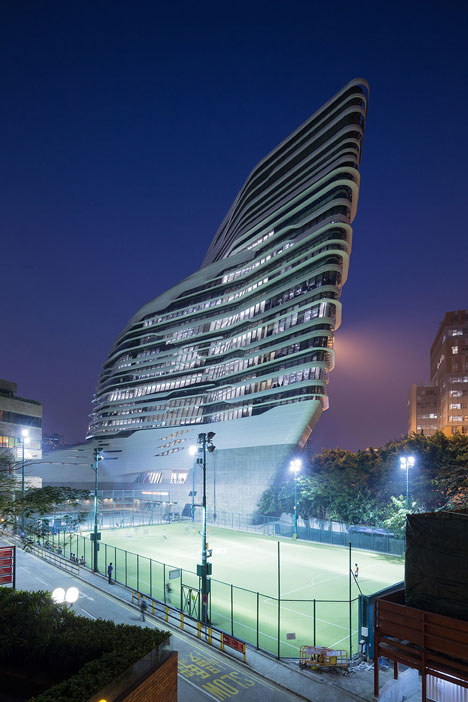
With its contribution of HK$249 million towards the construction of JCIT, The Hong Kong Jockey Club Charities Trust also funds the Jockey Club Design Institute for Social Innovation.
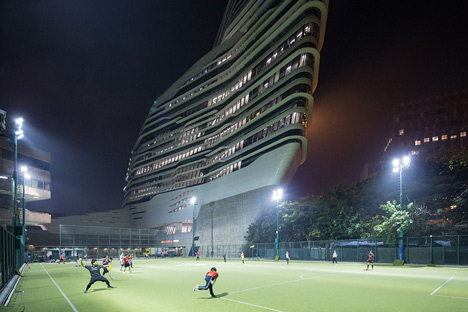
Client: Hong Kong Polytechnic University
Architect: Zaha Hadid Architects
Design: Zaha Hadid, Patrik Schumacher
Project Director: Woody K.T. Yao
Project Leader: Simon K.M. Yu
Project Team: Hinki Kong, Jinqi Huang, Bianca Cheung, Charles Kwan, Juan Liu, Junkai Jian, Zhenjiang Guo, Uli Blum, Long Jiang, Yang Jingwen, Bessie Tam, Koren Sin, Xu Hui, Tian Zhong
Competition Team: Hinki Kwong, Melodie Leung, Long Jiang, Zhenjiang Guo, Yang Jingwen, Miron Mutyaba, Pavlos Xanthopoulus, Margarita Yordanova Valova
Local Architect: AGC Design Ltd (Hong Kong) and AD+RG (Competion Stage)
Geotechnical/Structure/MEP/Facade Engineer: Ove Arup & Partners Hong Kong Ltd
Landscape: Team 73 Hong Kong Ltd
Acoustic: Westwood Hong & Associates Ltd
Quantity Surveyor: Rider Levett Bucknall Ltd.
